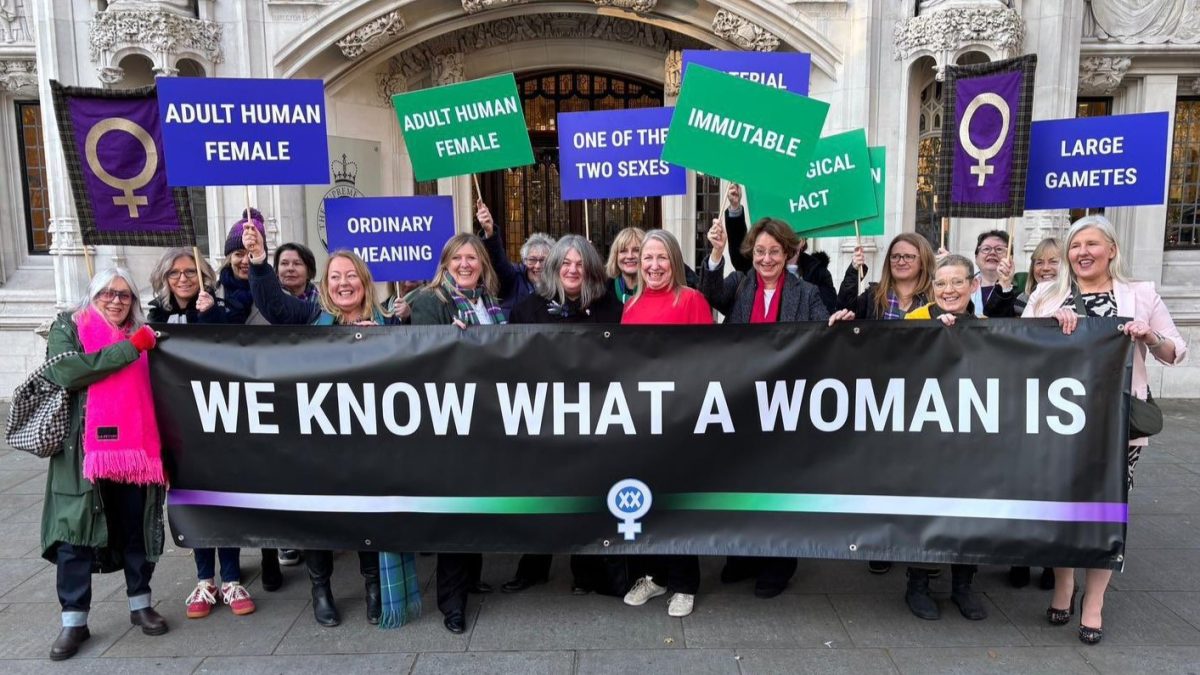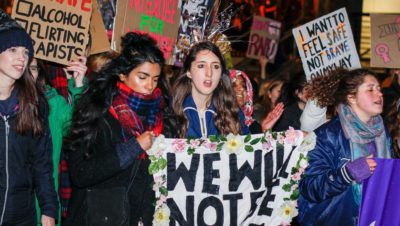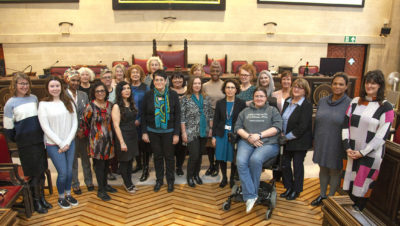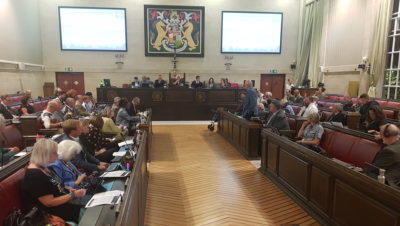Your say / women
‘Public opinion is now on our side when it comes to women’s rights’
I’m going to begin this article about a Bristol charity by talking about Scotland.
The Scottish government funds a group called Engender, which calls itself “Scotland’s feminist membership organisation”. For many years, Engender has been telling the Scottish government what women want. Unsurprisingly, this also happens to be what the Scottish Government wants to hear.
Over the past few years, Engender has been telling the Scottish government (and its police, NHS and schools) that what women really, really want are laws and policies based on the belief that men can really become women. Any man saying he is a woman should be allowed to use women’s changing rooms, access women’s refuges and play in women’s sports.
is needed now More than ever
It’s hard to know how Engender knows this: there’s little evidence of it carrying out rigorous surveys of Scottish women. What we do know is that an organisation funded by the Scottish government has been an enthusiastic supporter of the gender identity policies proposed by the Scottish government. Engender continues to receive lots of public money.
It’s become clear that many Scottish women do not support policies that allow men to access women’s spaces and sports, and that Engender has failed to speak for them.
Marion Calder, Trina Budge and Susan Smith (who run a grassroots organisation called For Women Scotland), challenged the Scottish Government in the UK Supreme Court.
Last month, they won. The five judges of the UK’s highest court told the Scottish Government that the definition of a woman in the Equality Act 2010 means a biological woman: not a man, even if he has obtained a certificate under the Gender Recognition Act that says he is a woman. If a space or a sport is designated ‘women only’ then it really means that it is only for women.
The ruling is in line with what opinion polls increasingly show: the majority understand that people are either female or male and that sex cannot be changed. If only Engender, with all of its public funding, had sought to ask more Scottish women what they really thought.
Back to Bristol. Bristol City Council has helped to fund Bristol Women’s Voice (BWV), a membership organisation for ‘all who self-identify as women’. In return, BWV is expected to tell Bristol City Council (and the local police and NHS) what women want. Like Engender in Scotland, it tells them that men who say they are women really are women.
The Supreme Court has now confirmed that this is not the law. Nor is it what many women in Bristol think. Yet BWV has already confirmed that its trans-inclusive membership policy, based on self-identification, remains unchanged.
I know that sex matters and know many other women who agree. We are concerned that BWV understands neither biology nor the law. We believe that advocating to allow men into women’s changing rooms, services for women escaping violence and abuse, and women’s sports is detrimental to women and girls.
Today, there are precisely zero women-only victim support services in Bristol.
The government has already welcomed the Supreme Court’s ruling. Even before the decision, Bristol South MP and health minister Karin Smyth had confirmed the right to single-sex spaces in hospitals. Smyth was one of the panellists at a session I attended at an International Women’s Day event hosted by BWV in March at City Hall (subsidised by Bristol City Council).
Earlier in the day, I’d joined a group of women handing out postcards on the street outside the event. The postcards contained statements such as ‘Humans can’t change sex’ and ‘Sex matters in education, sports, law, medicine, social care, and crime and justice’. Representatives of BVW had asked us to stop, saying we were undermining the vibe. They brought a security guard with them.
Later, inside the panel on women’s health, I referenced two employment tribunals being brought by female nurses against their NHS trusts because they object to having male colleagues in their changing rooms. I asked Smyth whether the government would protect single-sex spaces for female staff and patients in the NHS. She said, unequivocally, yes.
BWV had told us to stop handing out postcards only to hear one of their event’s panellists, a government minister, express the very view that was on the postcards. It didn’t make sense.
People are often afraid to even attempt to make sense of these issues, largely due to the frightening behaviour of some trans rights activists (who are most welcome to prove me wrong in any response they may make to this opinion piece).
In Bristol alone, women have been screamed at, followed and threatened by men in black balaclavas and had their incomes jeopardised for expressing lawful views about women’s rights.
Despite this, plenty of the public know what’s happening. As I walked down Park Street after the event, a woman shouted out to me: ‘Thank you! Great question!’
We wanted to talk to Bristol Women’s Voice and understand why they fail to advocate for women’s rights. Director Katy Taylor agreed to meet us.
Following the Supreme Court ruling that humans can’t change sex, Bristol City Council needs to rewrite any policy which grants men access to women’s single-sex spaces and services. We asked Taylor if she would commit BWV to urging the council to do so in order to end this unlawful discrimination against women. She declined.
It is deeply unfair – and undemocratic – that an organisation that receives funding from Bristol City Council to be the voice of women in Bristol fails to represent the lawful views of so many women in the city.
BWV told us that they had to be mindful of the ecosystem in which they operate when deciding how to respond to the Supreme Court decision. I understand what they mean all too well: an ecosystem of policy makers and activists who tell each other what they need to hear to keep the funding rolling in.
Engender stayed loyal to the Scottish government but has been forever tarnished by siding with politicians who thought rapists belonged in women’s jails. BWV risks doing the same.
Bristol City Council will doubtless spend our council tax to defend its unlawful trans policies – while our voices aren’t acceptable to them, of course our money is. Ultimately it will lose, because the law is now clear.
In the meantime, a new wave of grassroots women’s organisations has emerged to advocate for women’s rights: for privacy, dignity, safety and fairness. Public opinion, and now the law, is on our side.
This is an opinion piece by Clarissa Payne, a musician who lives in Bristol
Main photo: For Women Scotland
Read next:
 Our newsletters emailed directly to you
Our newsletters emailed directly to you



















